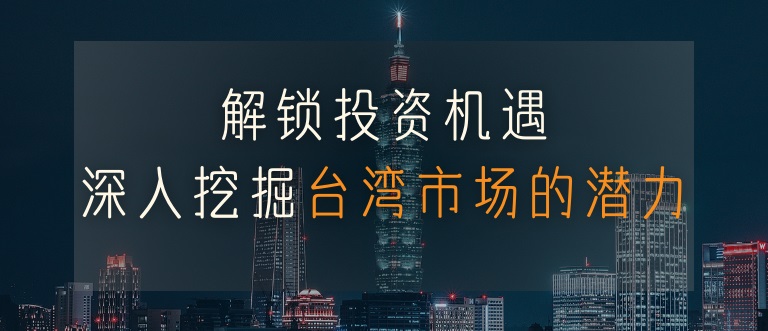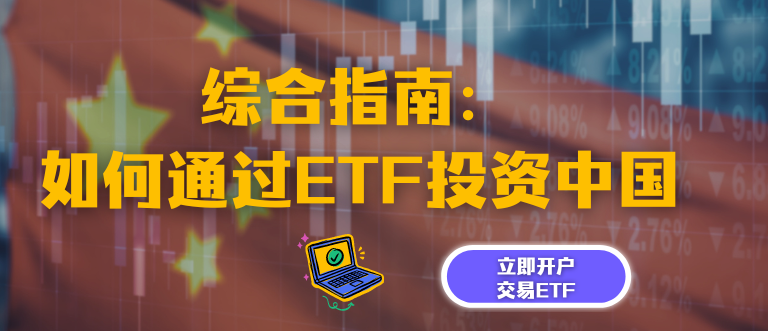Direct market access
Table of Contents
Direct market access
DMA offers traders and investors more transparency and control over transactions by giving them access to real-time market information, order routing, and execution capabilities. Traders can send orders directly to the exchange’s order book, which may result in quicker execution times and reduced trading expenses.
What is direct market access?
Direct market access (DMA) enables traders to execute buy or sell orders directly on the order books of a stock exchange or other alternative trading venue. This improves a trader’s ability to execute orders quickly and take advantage of price changes. DMA is frequently used by active traders and institutional investors who want better order execution and more control over their transactions.
Certain buy-side firms use direct market access to conduct trades instead of depending on market-making companies and broker-dealers to execute trades.
Understanding direct market access
Knowing about direct market access (DMA) is essential for traders looking for quick and easy access to the financial markets. DMA provides a direct connection to stock exchanges, accelerating the execution of transactions. These exchanges act as regulated markets where traders can trade several financial items, including stocks, derivatives, and commodities. Three prominent examples of such stock exchanges include the London Stock Exchange (LSE), Nasdaq, and the New York Stock Exchange (NYSE).
DMA users may create their own customised trading algorithms, and the platform additionally supports advanced trading strategies, including algorithmic and high-frequency trading. DMA’s improved access to financial markets and products makes portfolio diversification and enhanced risk management possible for investors. Avoiding typical brokerage channels may increase trading efficiency via DMA, resulting in better price and execution quality.
Benefits of direct market access
Direct market access (DMA) provides investors and traders with numerous advantages. Some of them are:
- When they have direct market access, traders have complete transparency into an exchange’s order book and all its trade orders.
- DMA often contributes to order execution that is faster and has less delay, which lowers the possibility of slippage and increases the chance of getting attractive pricing.
- Sophisticated algorithmic trading methods can be combined with direct market access platforms to optimise trade processes and save costs.
- DMA makes it easier for traders to access a wider variety of financial markets and products, which helps them diversify their holdings and take advantage of opportunities globally.
- Due to direct market access, Buy-side companies may execute trades at lower costs. Due to the swift execution of orders, traders are better equipped to take advantage of transient trading opportunities.
Uses of direct market access
For traders and investors, direct market access (DMA) has several significant uses, which include:
- DMA enables traders to avoid intermediaries by carrying out deals directly on the exchange’s order book.
- Because DMA is exposed to market depth and liquidity in real time, traders may make more informed decisions based on current market factors.
- DMA platforms frequently allow traders to customise their trading strategies to meet specific market circumstances and objectives by providing improved order types and customisation choices.
- DMA can lower transaction costs like commissions and fees by eliminating the requirement for traditional broking services, thereby saving traders money.
Examples of direct market access
For instance, a hedge fund or asset management company, which is an institutional investor, intends to execute a significant trade of a specific stock on the New York Stock Exchange (NYSE). The investor chooses to implement the deal via direct market access (DMA) instead of through a conventional brokerage company.
Through a direct connection between the investor’s trading platform and the NYSE order book, DMA enables investors to view both the range of market liquidity and real-time bid and ask prices. The investor chooses to put in a purchase order for a significant amount of shares at the current price.
Frequently Asked Questions
The primary advantage that direct market access (DMA) provides to traders is increased speed and control over the execution of transactions. DMA allows traders to communicate directly with exchanges, gaining instant access to real-time market information and facilitating the swift execution of orders by ignoring traditional intermediaries like brokerage or market makers.
Direct market access (DMA) ‘s primary drawback is the possibility of accidental or wrong trades. DMA enables traders to carry out orders on an exchange directly, eliminating intermediaries, which can result in quick and significant trades. However, due to the lack of adequate risk management and control, this direct access may cause accidental orders, incorrect executions, or disproportionate market effects, potentially resulting in substantial financial losses for the trader.
Direct market access works via an online trading platform, where a trader places an order to buy securities. The information about the order is sent to exchange servers and entered into an electronic trading book. Once the trader’s buy and seller’s prices are in line, the stock exchange accepts the order and completes it.
- First, you must create an account with a brokerage that provides DMA services to purchase or sell the underlying market at the most favourable price.
- Then, when placing an order, your broker will quickly verify if you have sufficient margin to initiate the trade.
- Your order will be immediately added to an exchange’s order books after the needed verifications, which take only a few seconds to complete.
- You may see the orders of other market players there and determine the market sentiment concerning your selected asset.
Through order books and trade execution without intermediaries, direct market access (DMA) enables traders to communicate with exchanges directly. On the other hand, market makers enable trading by providing liquidity and constant quoting of purchase and sell prices for specific securities. While market makers earn from bid-ask spreads and assume personal risk management, DMA traders are directly exposed to market risks.
Related Terms
- Deficit interest
- EPS forecast
- Adjusted distributed income
- International securities exchanges
- Margin Requirement
- Pledged Asset
- Stochastic Oscillator
- Prepayment risk
- Homemade leverage
- Prime bank investments
- ESG
- Capitulation
- Shareholder service fees
- Insurable Interest
- Minority Interest
- Deficit interest
- EPS forecast
- Adjusted distributed income
- International securities exchanges
- Margin Requirement
- Pledged Asset
- Stochastic Oscillator
- Prepayment risk
- Homemade leverage
- Prime bank investments
- ESG
- Capitulation
- Shareholder service fees
- Insurable Interest
- Minority Interest
- Passive Investing
- Market cycle
- Progressive tax
- Correlation
- NFT
- Carbon credits
- Hyperinflation
- Hostile takeover
- Travel insurance
- Money market
- Dividend investing
- Digital Assets
- Coupon yield
- Counterparty
- Sharpe ratio
- Alpha and beta
- Investment advisory
- Wealth management
- Variable annuity
- Asset management
- Value of Land
- Investment Policy
- Investment Horizon
- Forward Contracts
- Equity Hedging
- Encumbrance
- Money Market Instruments
- Share Market
- Opening price
- Transfer of Shares
- Alternative investments
- Lumpsum
- Derivatives market
- Operating assets
- Hypothecation
- Accumulated dividend
- Assets under management
- Endowment
- Return on investment
- Investments
- Acceleration clause
- Heat maps
- Lock-in period
- Tranches
- Stock Keeping Unit
- Real Estate Investment Trusts
- Prospectus
- Turnover
- Tangible assets
- Preference Shares
- Open-ended investment company
- Ordinary Shares
- Standard deviation
- Independent financial adviser
- ESG investing
- Earnest Money
- Primary market
- Leveraged Loan
- Transferring assets
- Shares
- Fixed annuity
- Underlying asset
- Quick asset
- Portfolio
- Mutual fund
- Xenocurrency
- Bitcoin Mining
- Option contract
- Depreciation
- Inflation
- Cryptocurrency
- Options
- Asset
- Reinvestment option
- Capital appreciation
- Style Box
- Top-down Investing
- Trail commission
- Unit holder
- Yield curve
- Rebalancing
- Vesting
- Private equity
- Bull Market
- Absolute Return
- Leaseback
- Impact investing
- Venture Capital
- Buy limit
- Asset stripper
- Volatility
- Investment objective
- Annuity
- Sustainable investing
- Face-amount certificate
- Lipper ratings
- Investment stewardship
- Average accounting return
- Asset class
- Active management
- Breakpoint
- Expense ratio
- Bear market
- Annualised rate of return
- Hedging
- Equity options
- Dollar-Cost Averaging (DCA)
- Due Diligence
- Contrarian Investor
Most Popular Terms
Other Terms
- Market maker
- Strong order book
- Economic calendar
- Fiat money
- Options expiry
- Settlement currency
- Federal funds rate
- Active Tranche
- Convertible Securities
- Synthetic ETF
- Physical ETF
- Initial Public Offering
- Buyback
- Secondary Sharing
- Bookrunner
- Notional amount
- Negative convexity
- Jumbo pools
- Inverse floater
- Forward Swap
- Underwriting risk
- Reinvestment risk
- Final Maturity Date
- Payment Date
- Secondary Market
- Mark-to-market
- Yield Pickup
- Subordinated Debt
- Trailing Stops
- Treasury Stock Method
- Bullet Bonds
- Basket Trade
- Contrarian Strategy
- Exchange Control
- Notional Value
- Relevant Cost
- Dow Theory
- Speculation
- Stub
- Trading Volume
- Going Long
- Pink sheet stocks
- Rand cost averaging
- Sustainable investment
- Stop-limit sell order
- Economic Bubble
- Ask Price
- Constant prepayment rate
- Covenants
- Stock symbol
Know More about
Tools/Educational Resources
Markets Offered by POEMS
Read the Latest Market Journal

继前一篇我们介绍了越南市场后,接下来我们将介绍泰国市场,泰国的表现一样引人瞩目。 受结构性问题影响,相较于菲律宾、马来西亚、印度尼西亚和越南,2023年,泰国全年GDP增幅远低于其他国家。泰国2023年GDP同比2022年增长1.9%,低于市场预测的2.5%。 2023年,中国-东盟自贸协定零关税给泰国带来了直接且沉痛的打击。由于消费疲软、贸易壁垒等政策影响,产能过剩,导致大量低价进口中国商品涌入,使得2023年泰国与东盟9国的总贸易额出现了3年来的首次下滑,其总贸易额为4万亿泰铢(约1489亿新元)。由于巨大的成本价格差异,其中泰贸易逆差扩大至1.29万亿泰铢(约480亿新元)。其中,小家电、蔬果、箱包和服装行业处境最为艰难。 尽管如此,旅游业的复苏增长带动了非农业产业的增长。政府数据显示,2023年来访泰国的总人数达3.15亿人次,较去年增长40.3%。其中,国际游客超过2800万人次,马来西亚和中国为最大客源。随着泰国对中国和哈萨克斯坦实施免签政策和其他活动措施,预计2024年将带来更多游客,推动泰国旅游业的复苏进程,并力争实现2024年旅游营业收入达到3.5亿泰铢(约0.12亿新元)的目标。 热销股票 1. ADVANCED INFO SERVICE PUBLIC CO., AIS,AIS通信(ADVANC.TH) AIS通信是泰国的最大移动运营商,主要经营三大业务线,包括移动业务、AIS Fibre品牌下的高速家庭宽带业务,以及企业业务。同时AIS也提供多样化的数字生活服务。AIS通过数字智能基础设施、跨行业合作和人力资本与可持续发展这三方面,致力于“成为泰国最受尊敬的认知科技公司”的愿景。 (来源:AIS2023财年年报)...

指数差价合约是区别于投资个股、指数期货或交易所交易基金(ETF)的一种热门替代品,因为该工具允许您获得特定指数的风险投资组合,并从柜台价格走势中获益,无论做多或做空。此外,由于差价合约的杠杆特性,交易者只需拿出合约价值的一小部分作为初始合约的抵押品即可启动一笔合约。这样,交易者就可以方便快捷地进行整个市场的交易。 本期重点摘要: 股票指数只是一组资产的集合,它概括了股市中某一行业板块的表现。许多此类指数根据不同的标准包含和/或排除某些股票。 指数差价合约有助于利用构成单一指数的各种股票分散您的投资组合、实现投资组合多样化。这也有助于避免 “选择悖论”:指数帮助您决定投资哪些股票。 最重要的是,指数差价合约让交易者获得对指数的接触,而不用购买组成指数的个股。这种具有成本效益的策略让您只需交易指数的价格变化,而无需拥有相关指数本身。 什么是股票指数? 当人们说 “今天市场上涨了 “或 “市场下跌了 “时,你会不会好奇,分析师是如何评估整个市场? 这很简单,他们只需分别将按照今天的报价和昨天的报价购买所有公司所需的金额相加。两相比较下,如果发现今天的数字大于前一天的数字,那么我们就知道今天的市场上涨了,反之亦然。然而,数字的汇总和对比可能会很繁琐和麻烦。创建指数就是为了方便测量。 因此,”股票指数 “一词指的是一组股票(或其他资产)的集合,它提供了股票市场特定部分表现的概况。该指数被用作一个替代指标,用来衡量市场在特定时间段内的涨跌情况,比如以上例子中所描述的逐日指数。...

本文旨在为中级外汇交易者提供必要的信息和知识。它将涵盖我们上一篇文章 “五分钟看懂世界上最活跃的市场-外汇差价合约(FX CFD)...

解锁台湾股市的投资潜力!深入了解由强大的技术驱动型经济推动的股票市场,2023 年机械和电气设备将占出口的 69%。在政治稳定、投资者友好的法规和健全的法律框架下,探索台积电和富士康等全球顶级企业。台湾股市值得称赞的历史表现和在国际贸易中的的重要性使其更具吸引力。在这个科技实力雄厚、经济稳定、充满活力的股票市场中,抓住增长机遇!

了解外汇市场 外汇交易市场又称外汇市场,是一个买卖货币的全球性金融市场。它是全世界规模最大、流动性最强的金融市场,每日交易量超过 6 万亿美元。但外汇市场有一个重要却常被忽视的一点,就是它受交易心理的影响。在本文中,我们将探讨外汇市场的复杂性,还有把重点放在交易心理与传统交易策略共同发挥的关键作用...

五分钟看懂世界上最活跃的市场 -外汇差价合约(FX CFD)
外汇交易市场俗称外汇或外汇市场,是全球金融市场的支柱。它是世界上最活跃的市场,2022 年 4 月,全球交易额达到创纪录的每天 7.5 万亿美元[1] 。这个活跃的市场为交易者提供了利用货币价格波动赚取利润的机会。在本文中,我们将解释外汇市场的基本原理,助您了解其投资机制。 什么是外汇? 外汇市场是一个分散的全球市场,世界上所有货币都在这里进行交易...






















